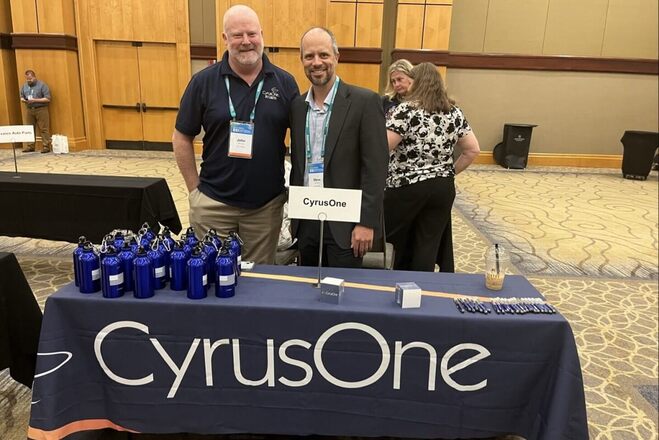In the ever-evolving legal landscape, the journey from law school to self-employment can be as diverse as the attorneys who navigate it. One attorney’s experience illustrates the nuances of transitioning from traditional law practice to freelance work, particularly in the realm of intellectual property (IP) law. Here’s a compelling transformation from a traditional law firm experience to a thriving independent practice.
After embarking on a legal education focused on intellectual property, the attorney found themselves at a law firm in Indianapolis. However, much to their surprise, the first job did not involve working on intellectual property cases but rather on a contingency basis. The unforeseen circumstances of a pandemic closure posed significant challenges, prompting a search for alternative income avenues.
Pivoting Toward Opportunity
During this challenging period, the attorney initially engaged in contract review and some trademark law. This pivot was not merely a response to financial necessity; it represented a significant turning point in their career. Approaching client needs from a freelance perspective allowed them to filter out the complex jargon typically associated with legal services, particularly for clients who might be overwhelmed by the intimidating nature of the legal system.
Within just a month, this new approach yielded impressive results. The attorney earned approximately $5,000 from freelance services, a significant sum that showcased the demand for relatable and accessible legal assistance. The success did not stop there; by the sixth month, their income had doubled, reaching $10,000. This substantial growth prompted consideration of a full-time transition into self-employment.
Making the jump from a law firm employee to a self-employed practitioner is not one to undertake lightly, but the journey of this attorney points to several vital factors that contributed to their successful transition.
Navigating the Freelance Legal Landscape
The initial months of freelancing were marked with insecurity and trepidation, common emotions for many professionals starting their own practice. However, the attorney focused on identifying a niche within the legal profession that resonated with their skills and passion: assisting first-time business owners and entrepreneurs, especially in managing their intellectual property rights. This demographic often consists of creatives and innovators who might be unfamiliar with the intricacies of legal formalities.
Understanding the Audience
One of the most effective strategies employed by the attorney was a commitment to demystifying legal processes. Recognizing that many clients were hesitant to approach large firms due to fear of exorbitant fees and complex legal terminology, they aimed to replace the image of a high-priced, unapproachable attorney with that of an accessible and understanding legal partner. This approach not only fostered trust but significantly broadened their client base.
“I try to be as approachable as possible to meet my clients where they are and make this process as smooth as possible.”
In the legal profession, this kind of client-centered approach can be pivotal. For aspiring freelancers in the legal domain, establishing a personal brand that connects with clientele while maintaining professionalism can enhance credibility. It’s critical to ensure that each client feels valued and respected, turning potentially overwhelming legal situations into manageable processes.
The Power of Networking and Marketing
As the freelance practice grew, so did the necessity to market services effectively. Utilizing digital platforms, social media, and word-of-mouth recommendations became essential strategies for the attorney. The pandemic accelerated the shift to online business, pushing many to seek legal advice remotely. This change created an unprecedented opportunity for freelancers willing to leverage digital platforms to reach a broader audience.
Engaging in online communities—be it through webinars, social media interactions, or blogging—was also instrumental in establishing a reputation as an authority in trademark law. Many legal professionals underestimate the value of community engagement in building a client base, but creating space for discussion on legal issues not only showcases expertise but also makes potential clients feel part of a supportive network.
- Leverage Social Media: Use platforms like LinkedIn, Instagram, and Facebook to connect with potential clients and build an online presence.
- Educate Your Audience: Hosting webinars or writing articles can position you as a thought leader in your field.
- Networking: Attend business events and join local entrepreneurial groups to meet potential clients and collaborators.
Word-of-mouth referrals remain one of the most potent marketing tools in the legal field. Satisfied clients who share their experiences can spur additional business, making testimonials and client success stories invaluable assets. The attorney’s ability to provide satisfactory services to clients led to a cascade of referrals, enhancing their reputation without significant promotional expenses.
Building a Sustainable Practice
Reaching a full-fledged self-employment status within a year speaks to the potential for success in the legal freelance environment; however, sustainable growth requires foresight and adaptability. As they progressed, the attorney focused on refining their service offerings, ensuring that they were attuned to the evolving needs of their clientele. Being adaptable is crucial in a freelance legal practice, especially in niches that can shift as market demands change.
Identifying Opportunities for Growth
This journey involved continuous learning—not just about law, but also about business management, marketing, and client relations. Investing in ongoing education and professional development can keep legal practitioners at the forefront of their field. Additionally, listening to client feedback is vital. It provides insights into the services clients value most, helping law freelancers prioritize their resources strategically.
For those venturing into freelance legal work, especially in areas like intellectual property law, remember: the journey may not follow a straight path. However, with dedication and an understanding of client needs, the potential for rewarding outcomes remains high. The shift from a typical law firm setting to creating a successful freelance practice not only highlights key strategies for success but reiterates the importance of adaptability in an unpredictable legal landscape. As displayed in this attorney’s experience, the challenge of pivoting can indeed lead to new opportunities that redefine one’s professional trajectory.



